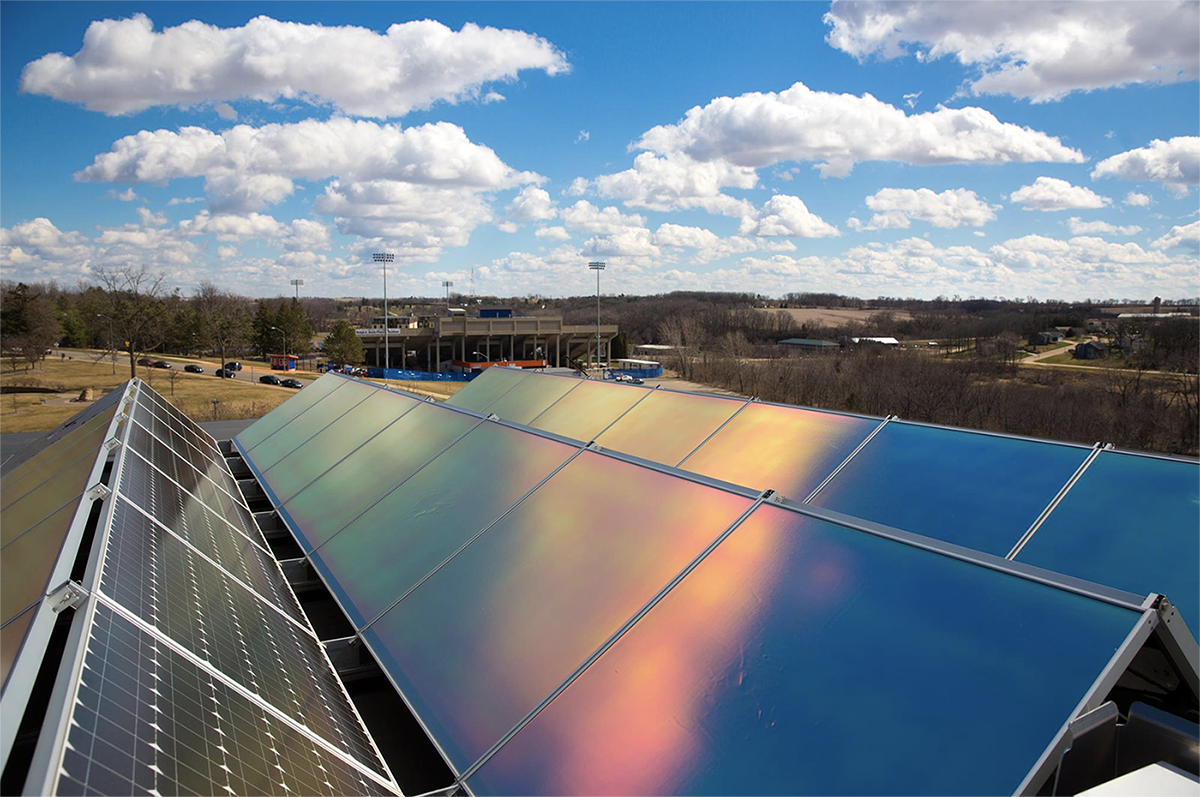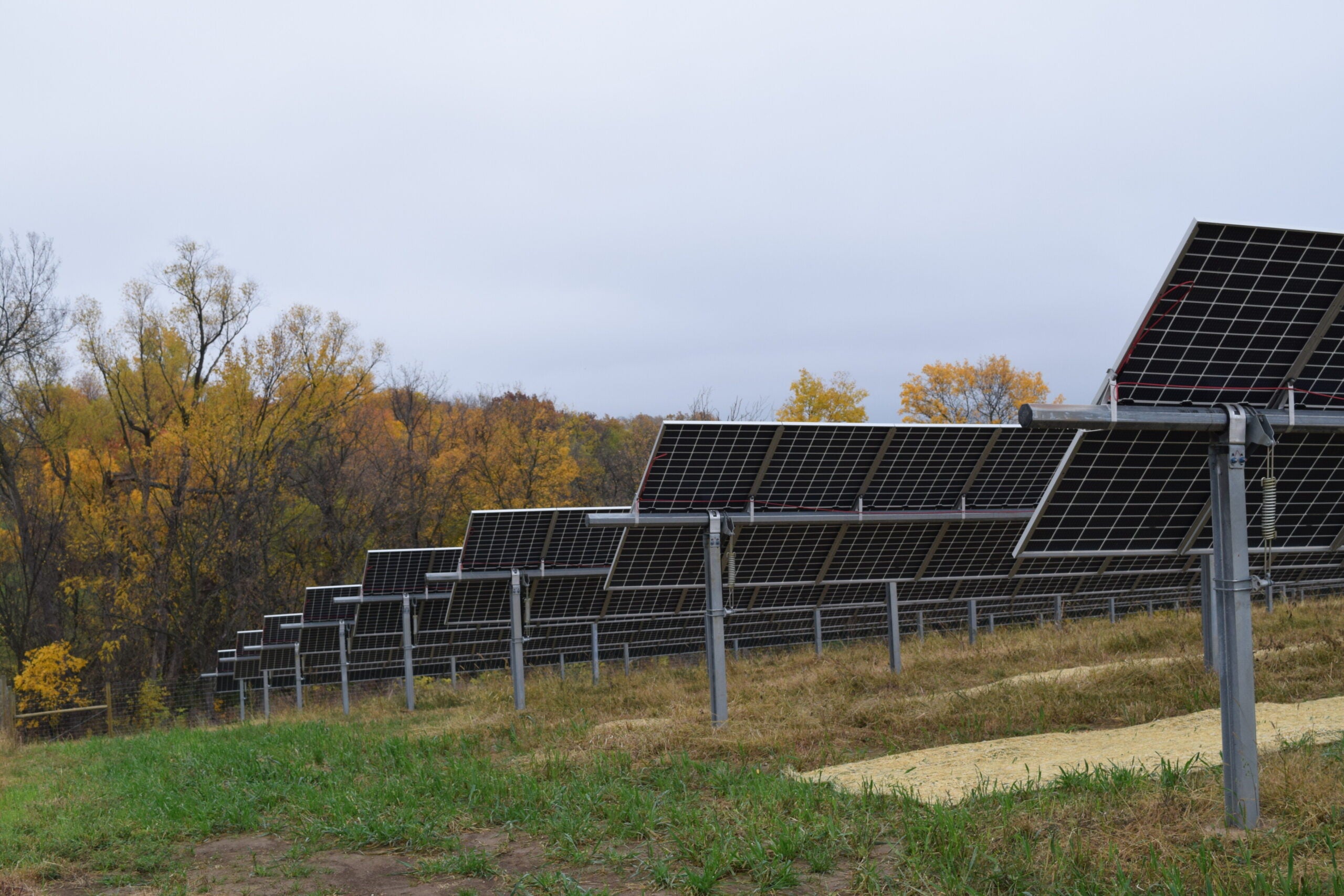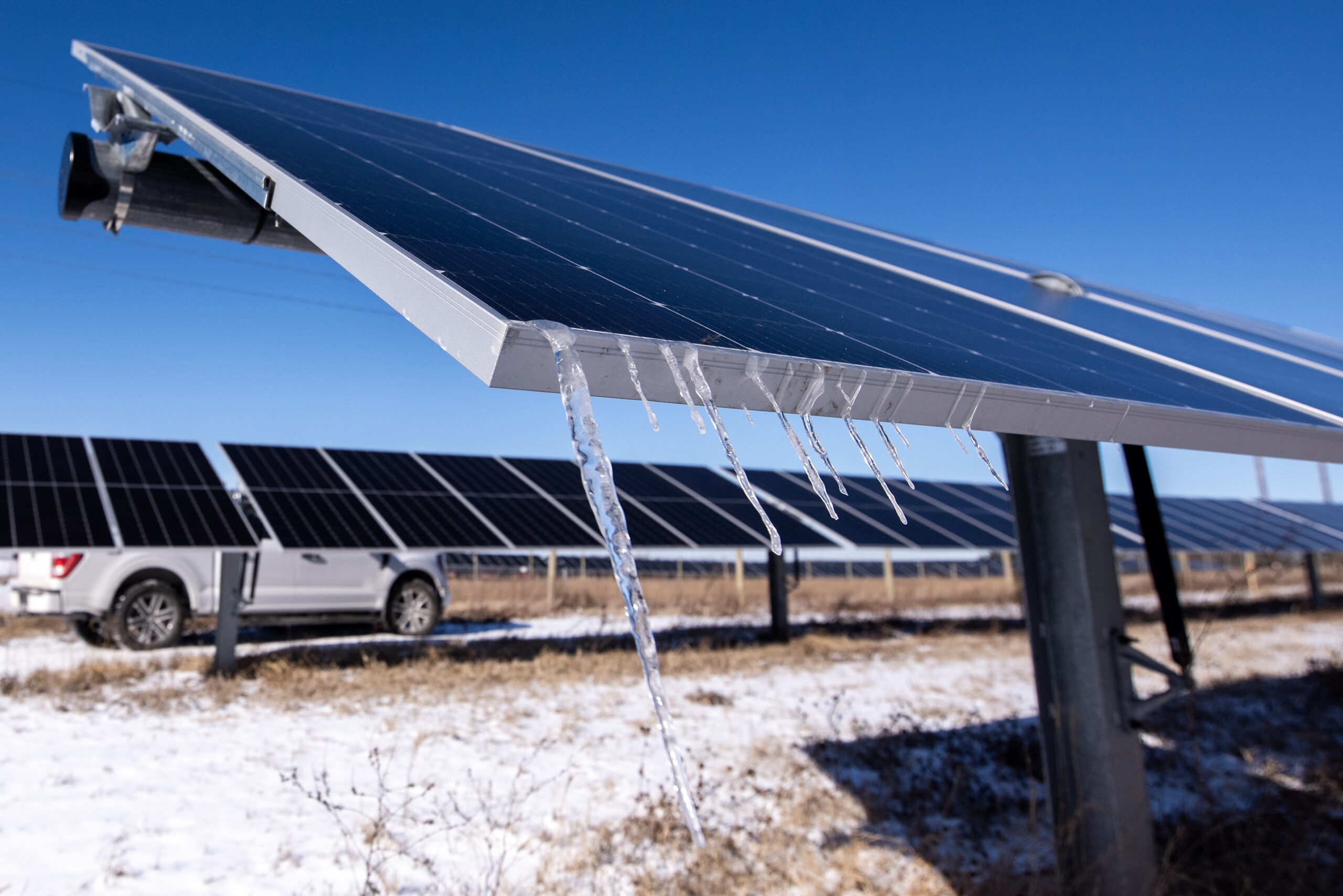A pair of renewable energy groups is asking state regulators to declare solar installers that lease solar systems to customers are not regulated public utilities under state law.
The Midwest Renewable Energy Association and Vote Solar filed petitions in late May with the Public Service Commission. They asked regulators to issue a ruling that third-party financing is legal. Guidance from the PSC has indicated third party financing of small-scale renewables would meet the definition of a public utility, requiring developers to get approval to sell power.
The financing tool allows solar installers or developers to pay the upfront cost of solar installations and lease the systems to customers, who pay them off over time.
News with a little more humanity
WPR’s “Wisconsin Today” newsletter keeps you connected to the state you love without feeling overwhelmed. No paywall. No agenda. No corporate filter.
“Companies that enter into a contractual relationship with a customer should not be regulated as monopoly utilities. We do not sell electricity to the public. They’re in a single contractual relationship,” said Nick Hylla, executive director of Midwest Renewable Energy Association.
“And whether the system is financed through a bank or a third party or directly owned, they operate exactly the same on the utility system by offsetting the customer’s load,” Hylla continued.
Supporters of the financing mechanism say it would make solar systems more affordable and accessible to schools, hospitals, local governments and Wisconsin residents. But, third party financing has been met with opposition from utilities.
Republican Sen. Rob Cowles, R-Green Bay, and Rachael Cabral-Guevara, R-Appleton, introduced bills that would allow solar installers to lease systems to customers. Cowles said the bills didn’t receive a hearing, highlighting the political power of utilities.
“We’re just talking about leasing from somebody, borrowing money, so a series of payments over a period of years. And that’s illegal? And I say, ‘Why?’” Cowles said. “I would wish the utilities would just accept this — like almost every other state in the nation — and not resist this.”
At least 28 states allow third party power purchase agreements, according to the U.S. Environmental Protection Agency.
A spokesperson for the state’s largest utility company, WEC Energy Group, which owns We Energies and Wisconsin Public Service, said utilities aren’t the only groups opposed to third party financing of solar systems. Labor union representatives also registered in opposition to the bills.
“This is the latest attempt to circumvent the law and the Legislature,” said Brendan Conway, spokesperson for WEC Energy Group. “Allowing an unregulated renewable company to sell power directly to certain customers at the expense of others is, in our view, not in the public interest. This proposal harms our customers by shifting costs to those who either cannot afford or choose not to have solar panels.”
Utilities have pointed to a University of California Berkley study that found lower income ratepayers are bearing a greater burden of energy costs as wealthier customers get power from rooftop solar. However, groups like the Wisconsin Conservative Energy Forum feel third party financing is a relatively minor reform that could generate more competition in the power sector.
“Everybody kind of worries about if all of these people get solar, and they go off grid, it’s going to be more expensive for those that can’t go off grid,” said Scott Coenen, the group’s executive director. “But, I think, actually, if we handle this well and if we find the right pragmatic way in Wisconsin, this can actually be a win for everyone.”
Coenen said legalizing third party financing could allow more people to install solar systems and lead to less pressure on the grid, possibly driving down costs for utilities during times of peak demand. Ratepayer and renewable advocates like Wisconsin’s Citizens Utility Board and RENEW Wisconsin also say it would give customers more control over their energy costs.
“You can lease a car for three years or longer, and there is no legal hurdle or anything else — but perhaps your credit rating — to interfere with that,” said Michael Vickerman, policy director with RENEW Wisconsin. “But, in this particular matter, we have entities that are organized as legal monopolies trying to suppress customer use as a means to save money on their electric bills. It’s as simple as that.”
Conway disputed that argument.
“We interconnect new solar projects from business and residential customers, on average, more than one a day, so we have no problem with solar,” said Conway.
The Wisconsin Utilities Association has said the state’s utilities can provide renewable energy to customers at a larger scale for less than the cost of rooftop solar projects.
Vote Solar and the Midwest Renewable Energy Association are working with customers to install multiple solar systems using third party financing. The groups want clarity before moving forward with those projects. They say uncertainty from the PSC over the financing tool effectively bars third party financing in the state.
The matter has been highlighted after Iowa solar developer Eagle Point Solar wanted to install solar panels on buildings in Milwaukee, according to the Milwaukee Journal Sentinel. We Energies would not allow those systems to connect to the utility’s system.
Last year, the Midwest Renewable Energy Association sued the commission, saying regulators went beyond their authority by blocking third-party financing. Hylla said that lawsuit in Portage County Circuit Court was dismissed in April.
Even so, Hylla said the PSC stated during the case that a declaratory ruling from the commission is appropriate for determining whether solar installers who lease systems to customers are considered public utilities.
“We expect that they will make a decision,” said Hylla. “And if not, we will appeal our lawsuit.”
The commission is accepting public comment before deciding whether to accept and act on the petitions filed by the groups.
Sen. Cowles said in comments filed with the PSC that the courts and Legislature have failed to act since the issue was first raised around a decade ago. The Green Bay lawmaker said he’s hopeful the PSC will resolve the issue, saying lawmakers will try again to address the matter if the commission fails to act.
Wisconsin Public Radio, © Copyright 2026, Board of Regents of the University of Wisconsin System and Wisconsin Educational Communications Board.




